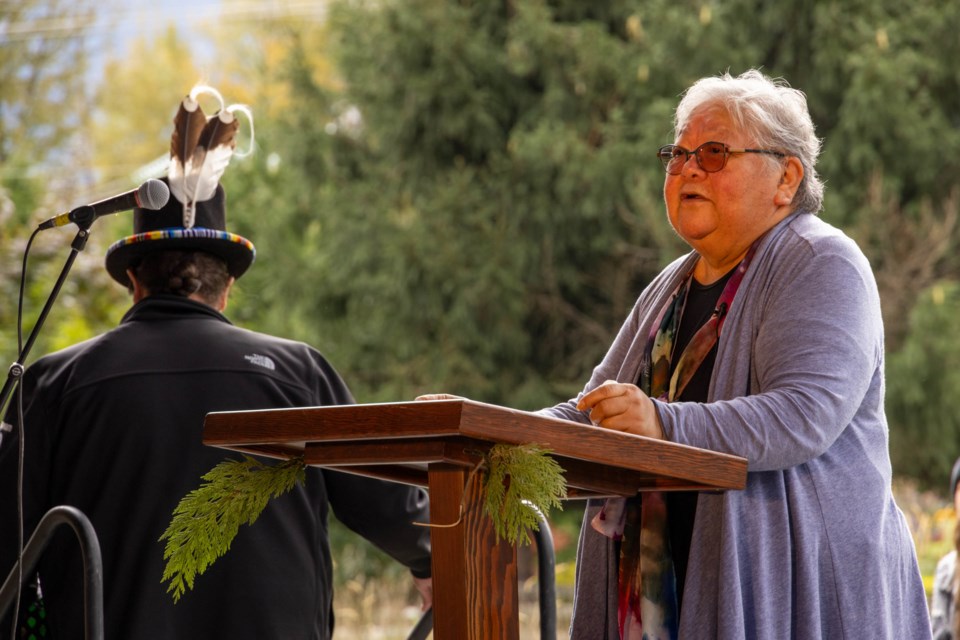“Why did not one person stand up and say something?” Elder Duke Redbird of Saugeen First Nation asked me during a recent interview, referring to Canada’s history of residential schools. It’s a question I’ve asked since I first arrived in Canada two years ago.
As always when it comes to truly hearing the First Peoples of this land, there have been plenty of voices screaming fire that were told to keep quiet. It’s up to us whether we listen to them. These voices are now telling us that Mother Earth is in danger, that people are taking too much and not giving enough back.
As a reporter tasked with covering Lil’wat stories, I was lucky enough to learn the history of this land from the only people qualified to tell it, its rightful owners. I was told a horror story about a colonizing state and church that was left to run riot. The Truth and Reconciliation journey is a beautiful concept, but casual racism, snide looks and prejudice still exist in mountain towns.
We ask how Canada’s history happened. Why was a bully allowed free reign around the playground? Then we see the cycle repeat and repeat. I know my own grandchildren will be asking me the same questions.
My time covering the unceded territory of the Lil’wat Nation has been a great privilege. I know the voices I have listened to here will shape the rest of my career, and more importantly, my life. Rosa Andrews, proud principal of Mount Currie’s Xet’ólacw Community School, told me about only taking the salmon we need from the river and ensuring there is enough left to feed future generations. I have thought about this every day since I first heard it. These are the voices that need to ring through each and every day.
These are the voices that aren’t heard when entire communities become news deserts and when journalists become few and far between.
I have seen first-hand how reporting can change based on the country. Canada’s journalistic landscape right now is bleak. It is extremely difficult to get unbiased news in a time when it is needed more than ever. Many outlets run biased coverage, sometimes bordering on propaganda, without a hint of shame. It has taken moving back home to Ireland to realize just how skewed some of the reporting in B.C. is. A lack of journalists in remote areas lets misinformation run rife. I remember first trying to access news on Facebook from a dingy basement in Vancouver. I was so confused why, due to Facebook’s news ban, I couldn’t search for news on the app, why such an important need would be cut off from people in a developed country.
Reporting happens at a far slower pace in B.C. than it does in Europe, something friends of mine outside journalism have remarked on. While covering the 37-year-old search for missing Lil’wat man Stanley Morris Peters, I also saw first-hand how reporting can greatly differ depending on your race—even in the ’80s and ’90s, which isn’t that long ago in the grand scheme of things. It would be nice to say society has come leaps and bounds since then, but that is simply not true.
As my former colleague Scott Tibballs mentioned in a recent column, Canada loves opinion pieces. I don’t feel any more qualified to give my views on Indigenous affairs than a barfly in the Longhorn. I would love to see more space given to First Nations voices across the board. These are the voices that will help stop the shameful damage we have done to our planet. These are the voices that will teach us how to live in harmony with wildlife.
Before I left Pique, I watched on as the youngest members of Lil’wat Nation sang their traditional songs at the land blessing for the Harrow Road development. I watched as teenagers hand-drummed with their elders in the pouring rain after taking back Pipi7íyekew (Joffre Lakes).
It reminded me of an Irish saying that goes, mól an óige agus tiocfaidh sí, or praise the youth and they will flourish.
Kulmawatixs.
Go raibh míle maith agat.
Thank you.




